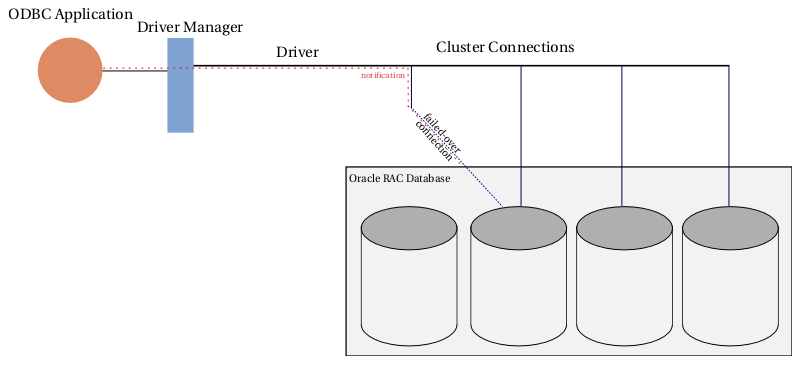Oracle Instant Client Support Fact Sheet
Transparent Application Failover (TAF) is a protocol within Oracle whereby, if a connection to a database node fails, it can be re-established against an alternative node.Figure: 4.9.1.1.

Once a broken connection has failed-over, an application can continue without any special action on its part. However, TAF does not restore all facets of a connection. For instance, TAF does not:
- restore active transactions - any active transactions are rolled back at the time of failure because TAF cannot preserve active transactions after failover: the application instead receives an error message until a ROLLBACK is submitted;
- restore session properties set using 'ALTER SESSION';
- maintain the state of server-side program variables, such as PL/SQL package states.
If any of these situations apply to a failed connection, an application may need to take action following failover to return the connection fully to the desired state.
In order to do this, the application may request to be notified when failover has occurred.
The
The Oracle 10g Lite Driver and Multi-Tier Agent also allow configuration of the failover retry interval and the maximum number of failover retries, in the event that failover is not successful on the first attempt.
Visit
Configure Oracle Real Application Clustering
